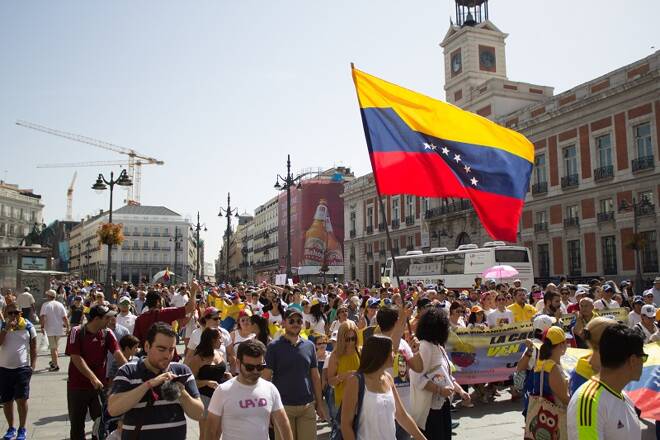Advertisement
Advertisement
Venezuela Minimum Wage Risen 18-Fold, Pegged to Cryptocurrency Petro
Updated: Mar 4, 2022, 16:52 GMT+00:00
In order to execute the pay hike, the government will be using money that they acquired from months of saving tax revenue.
Key Insights:
- The rise in minimum wage was announced by Venezuela’s President today.
- The minimum wage will now be increased to 126 bolivars ($28).
- The government will achieve this by pegging the pay to half the value of the government’s cryptocurrency Petro.
President of Venezuela Nicolas Maduro increased the minimum wage in the country during a speech in front of 10,000 government workers.
This decision came after the country somehow found stability last year after years of hyperinflation.
Venezuelans Become Slightly Richer
Maduro stated that individuals working in the private sector earn much higher salaries than government workers. Thus, to sustainably increase salaries, he proposed feasibility discussions.
At the same time, he raised the minimum wage for workers 18-fold. This places the monthly income of such workers at 126 bolivars, equivalent to $28.
This would also be reflected in minimum wage workers in the private sector. Therefore, vice President Delcy Rodriguez has been instructed to dialogue with companies to execute the same.
Additionally, the raise would apply to social security pensioners as well. Iterating the same, Maduro said in his speech:
“You proposed to set the workers’ basic minimum wage to half a petro, approved! And that pushes all salary tables upwards”
In doing so, the government will now peg the minimum wage of 126 bolivars to half the value of 1 Petro. Petro is the cryptocurrency launched by the Venezuelan government four years ago.
It was established to supplement the falling value of the country’s currency hard bolivar.
The bolivar’s value began falling ever since the Trump administration placed sanctions on Venezuela. Technically, Petro would be classified as a stablecoin since it is centrally issued.
Still, due to its pricing and volatility, the world has categorized it as a cryptocurrency.
Petro’s Criticism
Unlike other centrally issued digital currencies like the e-CNY, Petro is pegged to 1 oil barrel instead of 1 bolivar. This has resulted in the country drawing criticism from other countries and its people as well.
Built on DASH based chain, the Petro has no substantial value due to its volatile peg and undocumented origins, i.e., the absence of a whitepaper.
On top of that, the Venezuelan government forces people to use cryptocurrency. It has made it mandatory to pay for government document services and airplane fuel for planes flying international flights with Petro.
The Brooking Institution commented on the Petro, saying:
“It is relatively unsurprising that a dictatorship with little reserve currency … has resorted to a deceitful means like introducing the petro … the petro … exists to create foreign currency reserves from thin air.”
Thus whether or not this will turn out to be a good decision is yet to be found out, but the people will benefit from the pay hike.
About the Author
Aaryamann Shrivastavaauthor
Holding a Mass Media Degree has enabled me to better understand the nitty-gritty of being a journalist and writing about cryptocurrencies’ news and price movements, effects of market developments, and the butterfly effect of individual assets nurtured me into a better investor as well.
Advertisement
